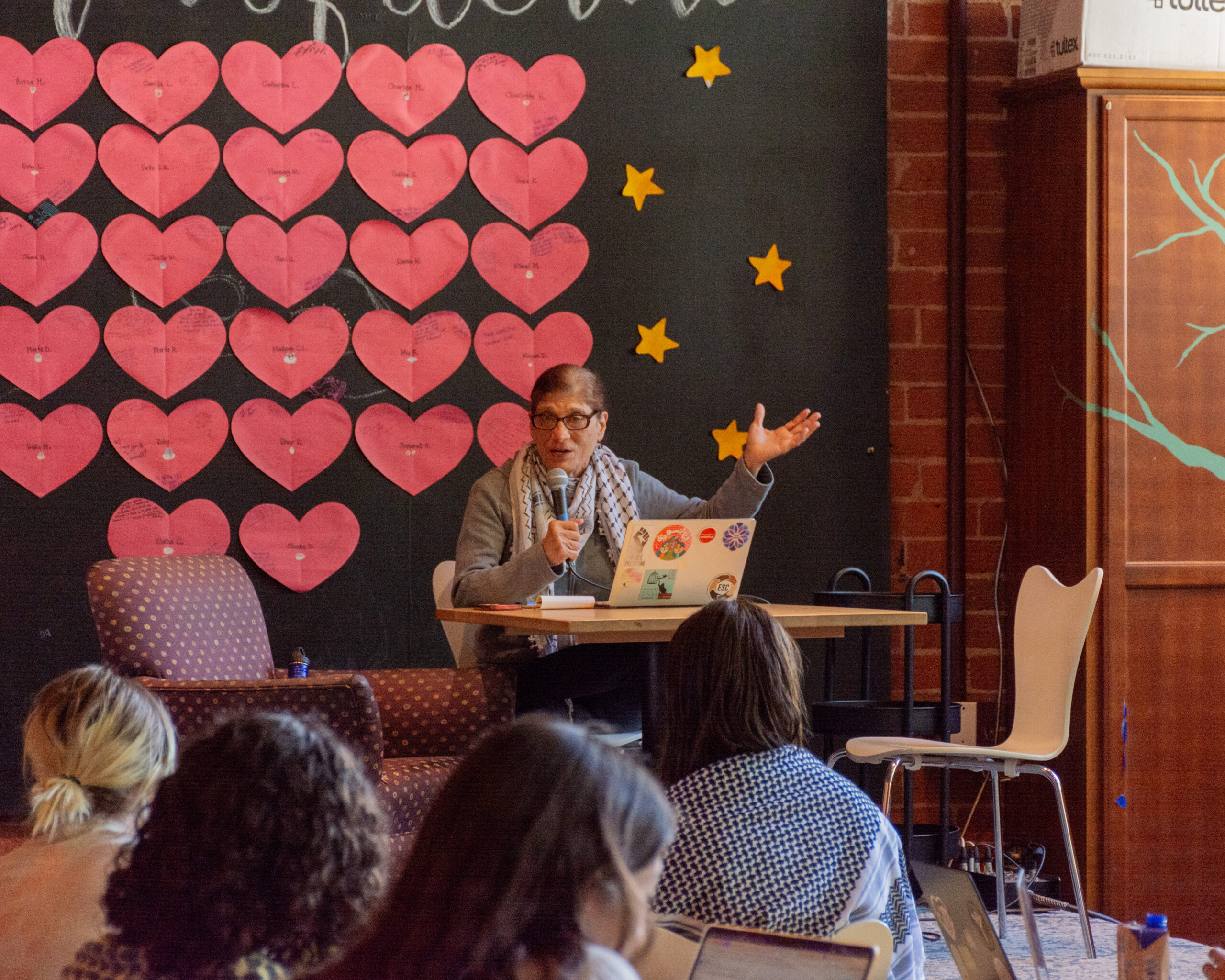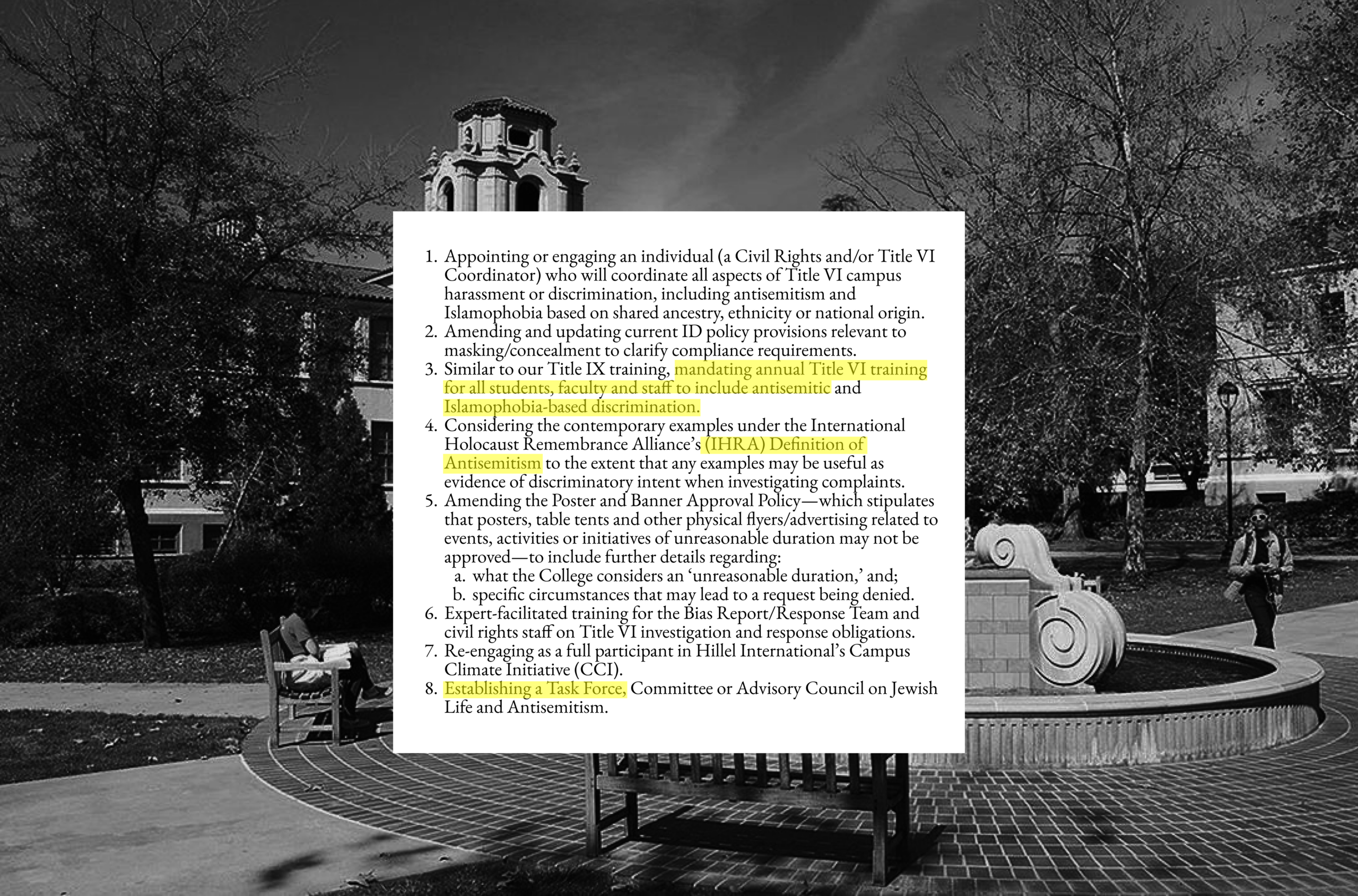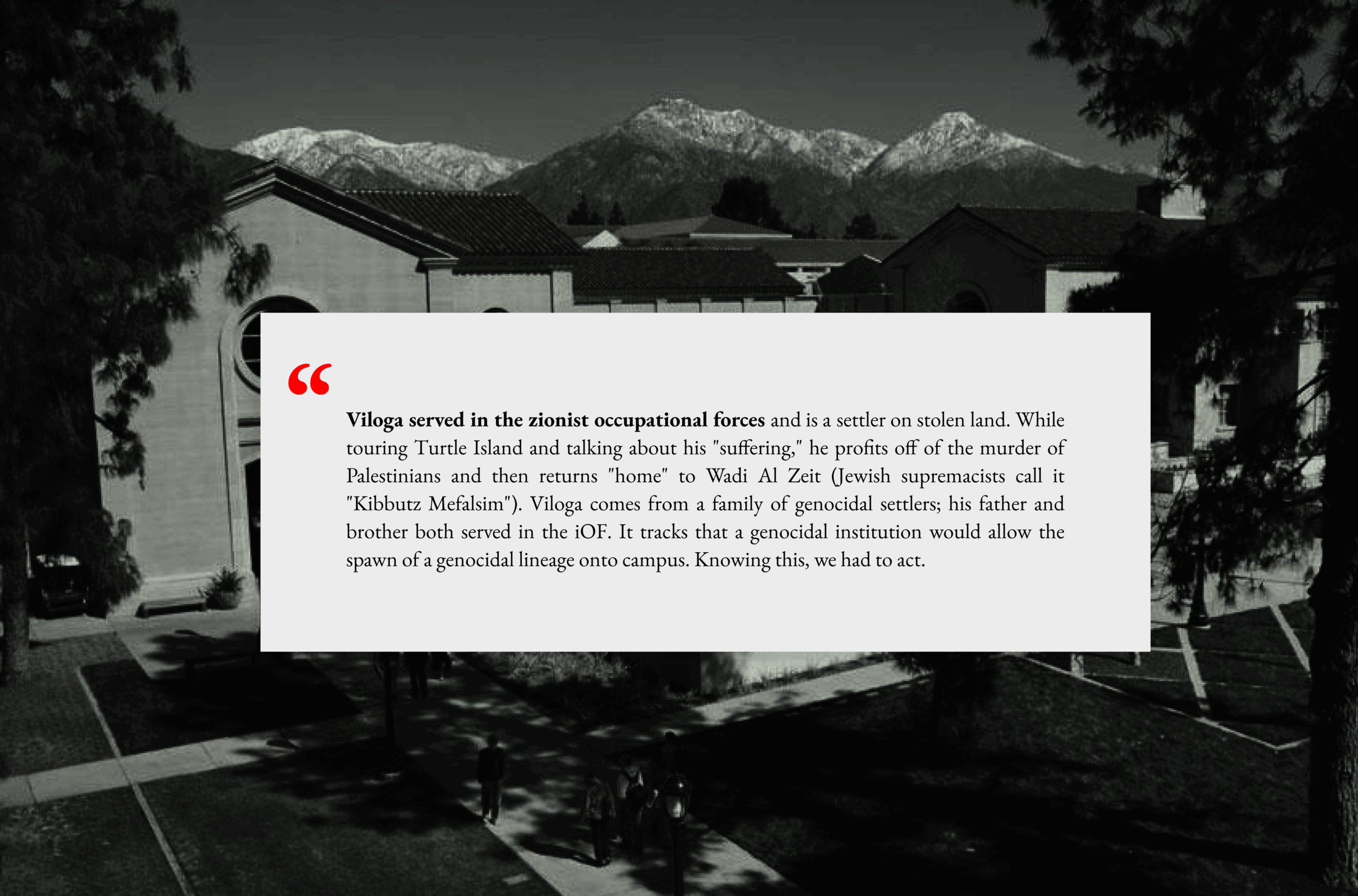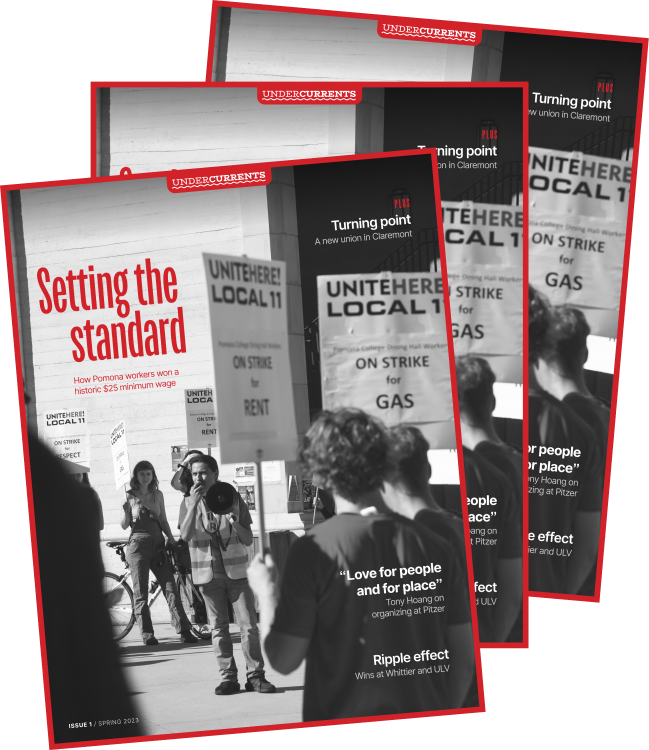
May 6, 2025
Scholar and activist Nada Elia visited the Claremont Colleges for Palestine Liberation Week to discuss the history and future of Palestinian feminism organizing.

On April 11, students gathered at the Motley Coffeehouse to attend a talk given by scholar and activist Nada Elia. Elia discussed the history of Palestinian feminist organizing against both the British and Zionist colonial movements, while also touching on the ways in which students can leverage this history to further their own organizing.
The talk was organized as part of Claremont SJP’s Palestine Liberation Week (PLW), a weeklong event series that brought in speakers, events and workshops to the Claremont Colleges that all centered on the Zionist entity’s ongoing genocide in Gaza and the continued fight for Palestinian liberation.
Elia began by defining transformative feminism as a type of feminism that focuses on collective liberation struggles rather than individual achievements.
“I don’t consider it a transformative feminist achievement to become president of an empire. I don’t consider it a feminist achievement to become commander in chief of the military. I don’t consider it a feminist achievement to become CEO of a multinational [company] that exploits child labor and natural resources,” she said.
Elia argued that Palestinian feminism draws upon this idea of transformative feminism because of the way it centers itself within the fight for Palestinian liberation and decolonization more broadly.
“As Palestinian feminists, we are frequently told by detractors within our own community that feminism is a Western concept. It’s imposed by colonialism. [But] feminism was a reaction to colonialism. The Palestinian feminists were very much opposed to colonialism,” Elia explained.
Because Palestinian feminism is deeply centered within decolonization, Elia argued that it is inherently opposed to traditional Western understandings of feminism.
“The imposed Western concept [of feminism] wants us to believe that anti-Arab racism is so strong [that] basically you can’t be an Arab feminist,” she said. “[That] to be a feminist, as an Arab, you have to shed your culture. [That] you have to reject it and say I’m a feminist and don’t like my culture because my culture is patriarchal. No, we are feminist. We want to preserve our traditions. We are anti-colonial. So that’s a transformative kind of feminism that for me represents [and] describes Palestinian feminism.”
Elia then went on to draw parallels between Palestinian feminism and Indigenous feminism, which she similarly defined as another type of transformative feminism.
“Palestinian women have always taken pride in their culture and national identity, and have always tried to preserve it despite the heavy handed imperial attempts at erasing both our traditions and our people.” she said. “If you think of here on Turtle Island, the Indian boarding schools and how much they tried to ‘kill the Indians [to] save the man’ [which meant] get rid of the indigeneity of these humans, but don’t necessarily kill them all. Of course Israel has done [the same] for the longest time by trying to erase our cultures.”
Elia highlighted how Palestinian feminists work to preserve their cultural heritage and traditions as a form of resistance against the Zionist entity’s colonization and erasure of Palestinian land and culture.
“Palestinian women have sustained our people by carving the way forward, step by strenuous step in an increasingly hostile environment,” she explained. “This first necessitated fighting for national and cultural sovereignty under the British mandate, then resisting Israel’s relentless settler colonial attacks. Organizing for social and political liberation is also generously guarding our culture and indigenous traditions. And today what we are seeing is Palestinian women trying to preserve the tar trees, our cooking, and our culinary traditions. And it’s Palestinian women who are doing that.”
Elia also situated her talk within the current political climate of the United States, as she emphasized the importance of building solidarity with ongoing protest movements such as the national “Hands Off” protests that happened on April 5.
“When we saw protests last weekend, obviously lots of people are saying something is seriously wrong. As organizers, it is our duty [and] responsibility to not just tell them ‘if you do not mention Gaza we’re not gonna put [up] a united front with you,’” Elia said. “As organizers, we have to [be a] united front with these people. So when they say hands off Medicare, hands off social security, we say hands off Gaza. And the protestors are [now] ready for that because they’ve had enough of the [repression].”
Despite the difficult political environment right now, Elia emphasized people are motivated to organize and build power with one another during the most dire moments.
However, Elia also emphasized that witnessing the brutality of the Zionist entity’s ongoing genocide in Gaza should be the primary way in which people should radicalize themselves.
Since formally resuming its bombing campaign and ground invasion of Gaza on March 18, the Zionist entity has killed over 921 people and wounded 2054 others.
“We need to be radicalized by the brutality that we are seeing. One thing that gives me hope is that as I was doing this research, what I noticed is that transformative empowerment happens under the harshest of circumstances. It is when it’s literally life and death,” Elia said.
She ended her talk by urging the audience to learn from the history of organizing that Palestinian feminists have embodied for centuries and to apply them to the ongoing global fight for Palestinian liberation.
“We look at the fact that we are in such a more globalized world than a hundred years ago. We need to look at these models and we need to organize to build a united front that is alternative and transformative rather than more of the same,” Elia said.


Commentary

Palestine

Palestine

Undercurrents reports on labor, Palestine liberation, prison abolition and other community organizing at and around the Claremont Colleges.

Issue 1 / Spring 2023
Setting the Standard
How Pomona workers won a historic $25 minimum wage; a new union in Claremont; Tony Hoang on organizing
Read issue 1